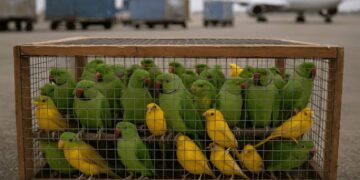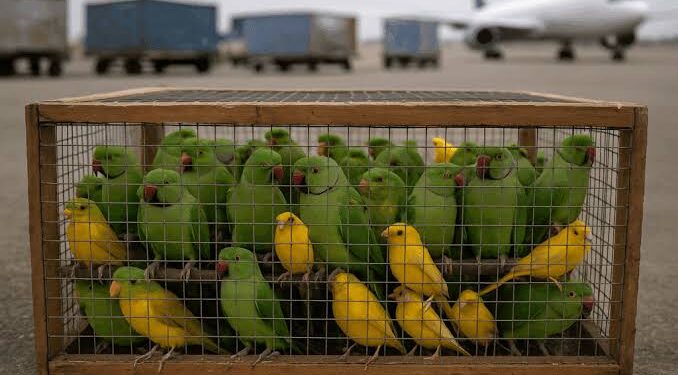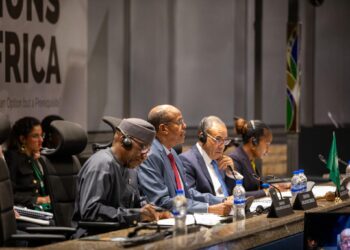By Emmanuel Nduka
The Nigeria Customs Service has intercepted a major consignment of over 1,620 exotic birds at the Murtala Muhammed International Airport in Lagos, foiling an attempt to illegally export them to Kuwait without the required documentation.
The birds, mainly ring-necked parakeets and green and yellow-fronted canaries, both classified as protected species, were seized during a routine inspection on July 31.
According to customs officials, the shipment had no valid export permits, including the mandatory CITES (Convention on International Trade in Endangered Species of Wild Fauna and Flora) certificate.
“No illegal shipment will slip through the cracks under my watch at the airport, because the eagle eyes of our officers are everywhere to detect and intercept,” said Customs Area Comptroller Michael Awe in a statement released Monday evening.
Nigeria, a signatory to the CITES agreement, is obligated to ensure that the transport of endangered animals adheres to strict legal protocols. The lack of documentation for this shipment raised red flags and prompted immediate action by authorities.
The confiscated birds have since been handed over to the National Park Service, which will oversee their rehabilitation and eventual reintroduction into the wild, Awe confirmed.
An investigation is now underway to identify those behind the attempted export. Authorities say prosecution will follow once the culprits are identified.
Wildlife experts have welcomed the seizure as a major win in the ongoing fight against the illegal wildlife trade. “This is a positive sign of change,” said Mark Ofua, West Africa spokesperson for the international NGO Wild Africa. “Nigeria has long been a hotspot for illegal wildlife trafficking, especially for products like ivory and pangolin scales destined for Asian markets,” he added.
Ofua attributed the country’s vulnerability to porous borders, weak enforcement, and widespread corruption. He added that the Arabian Gulf often serves as a key transit point due to frequent flights and its location between Africa and Asia.
Heritage Times HT reports that data from a joint 2018 report by USAID and C4ADS titled ‘In Plane Sight: Wildlife Trafficking in the Air Transport Sector’, shows that bird trafficking routes between 2009 and 2017 frequently passed through Gulf countries, reinforcing the booming illicit trade in the region.
Wildlife trafficking is estimated to be worth between $8 billion and $10 billion globally each year, making it one of the most profitable transnational crimes after drugs, arms, and human trafficking.
This latest seizure highlights both the scale of the problem and the growing vigilance of Nigerian enforcement agencies working to curb it.




































